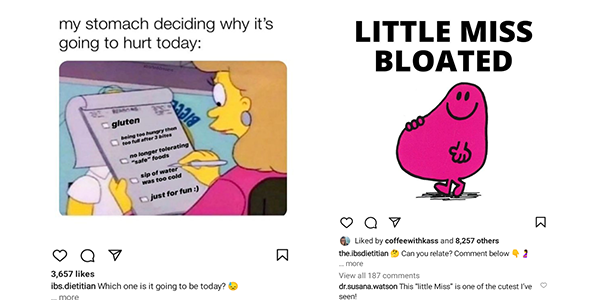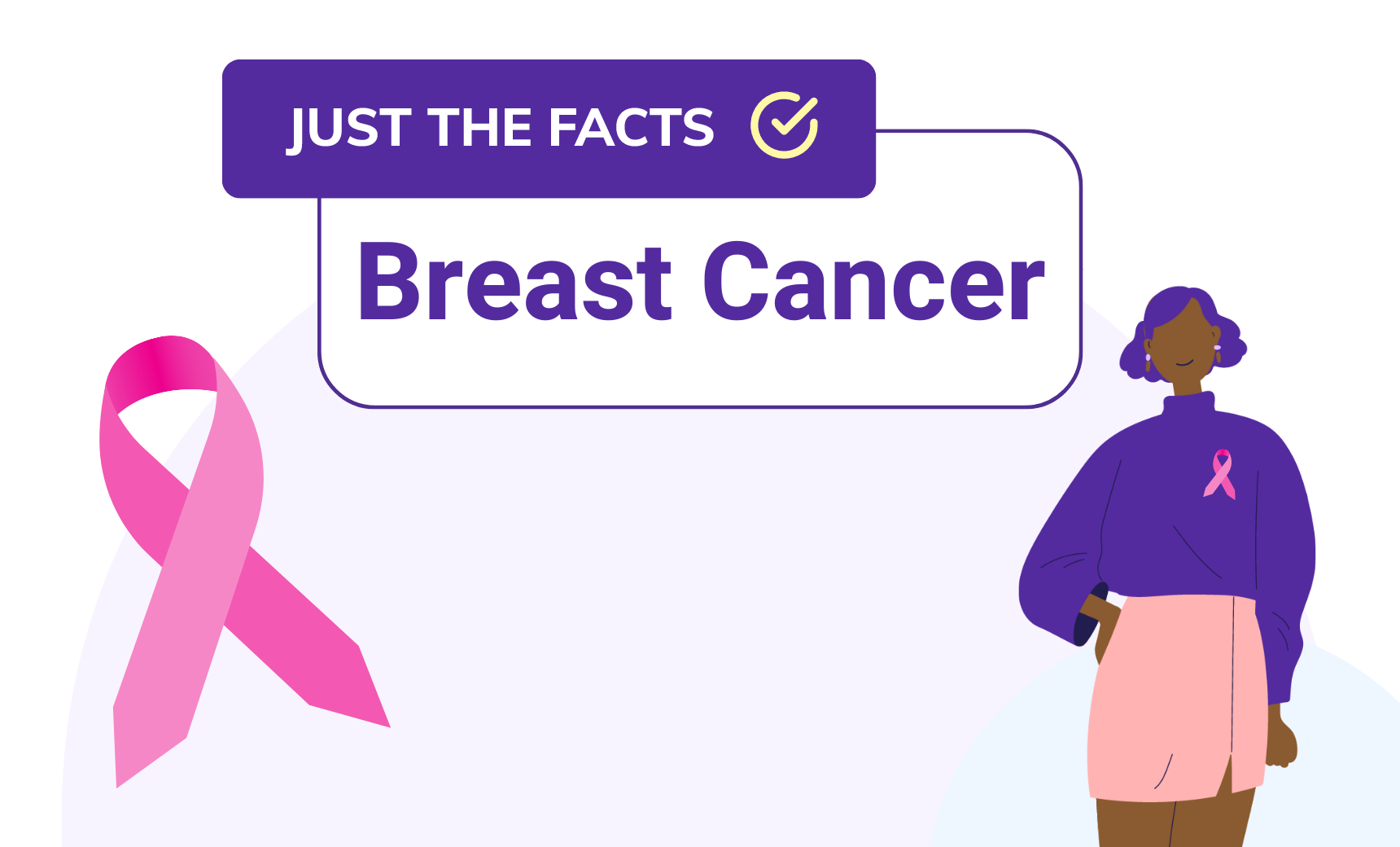
Why is Everyone Talking About IBS?
What's up with "hot girl IBS"? Inside this intestinal disorder and why it's trending.
TikTok is known for choreographed dances, funny videos, and…irritable bowel syndrome? Across social media, irritable bowel syndrome (IBS) has begun to be known as the chronic illness for “hot girls.”
Being a “hot girl” isn’t just about being hot or even being a girl. It’s about having a certain amount of confidence in yourself. As the rapper Megan Thee Stallion, originator of the “hot girl” trend with her song “Hot Girl Summer,” wrote on Twitter, “Being a Hot Girl is about being unapologetically YOU, having fun, being confident, living YOUR truth, being the life of the party etc.”
Now, living your truth includes disclosing stomach ailments.
Search the #ibstiktok hashtag on TikTok and you’ll find videos giving advice on IBS-friendly foods, explanations of what IBS is, and funny skits about the struggles of living with this disorder.

IBS has been meme-d, and influencers have no restraint when they discuss their stomach struggles on their channels. In the short video “IBS Is My Entire Personality,” an actress talks non-stop about the foods she can’t eat, brags about knowing every Starbucks bathroom door code in the city, and demands a Disney Princess with IBS.
Even though IBS is trending online, that doesn’t mean it’s necessarily trending as a disease. It’s just that people are finally talking openly about it, much as they are with mental health struggles and other disorders. IBS is incredibly common as the most frequently diagnosed gastrointestinal disorder. Experts estimate that 10-15% of the US population has IBS. The condition can cause cramping, abdominal pain, gas, and bloating, as well as diarrhea and/or conspiration. Stress and food intolerances can worsen the condition.
As for it being something that afflicts “hot girls”? There’s actually some truth to that. Though anyone can get IBS, it most often occurs in those under age 50 and is more common among women. It’s estimated that 14-24% of women in the US have IBS, and hormonal fluctuations from menstruation can worsen symptoms.
Because stress is a known aggravator of IBS, the stress from the COVID-19 pandemic may also be to blame for some of the uptick in identifying and talking about IBS. The American Psychological Association has also identified inflation, supply chain issues, and global uncertainty as major current stressors.
But just because IBS seems trendy doesn’t mean you have to suffer through it. The condition can be debilitating for some and, because there is no cure, the condition requires management to reduce and relieve symptoms. Talk to your doctor if you’re experiencing IBS symptoms to get a diagnosis and figure out the best path to management. It’s also important to make sure there aren’t other intestinal issues going on, which may be serious.
Though there is no test to diagnose IBS specifically, tests can be done to rule out other conditions. Doctors may recommend stool studies, a colonoscopy, an X-ray or CT scan, an upper endoscopy, lactose intolerance tests, celiac tests, or breath tests for bacterial overgrowth. Many of these tests can be scheduled via LabFinder.
Doctors may also recommend a low-FODMAP diet, a type of elimination diet which can help pinpoint which foods worsen one’s IBS. Other treatments include medication, psychotherapy, and stress reduction.
And remember: No matter your age, appearance, or gender, there’s space to embrace your “hot girl” IBS, find a community, and seek a better relationship with your bathroom breaks.
Have questions about IBS? Or are there other topics you think we should cover? Drop us a line at illuminator@labfinder.com.





LabFinder Editorial Team
The LabFinder Editorial Team is behind The Illuminator and The Insider, LabFinder’s consumer and business blogs.
Dr.Robert Segal
Dr. Segal is CEO and co-founder of LabFinder, as well as a board-certified cardiologist. He began practicing medicine in 2002 and has founded several businesses, including Medical Offices of Manhattan and Manhattan Cardiology.